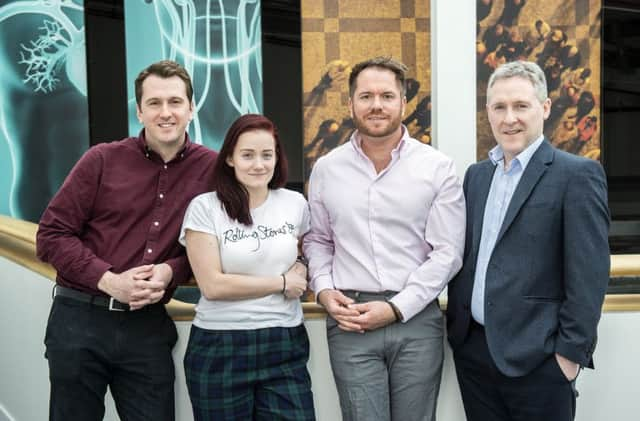Strathclyde spin-out gets £1.2m to advance brain cancer detection test


ClinSpec Diagnostic, based at the University of Strathclyde’s Technology & Innovation Centre, has landed a £1.2 million investment to further develop a “revolutionary” blood test which could potentially improve brain cancer survival rates through early detection of the disease.
The sum was raised in a syndicated round including Mercia Fund Managers, the Scottish Investment Bank’s Co-Investment Fund and transaction leaders EOS Technology Partners.
Advertisement
Hide AdAdvertisement
Hide AdIt comes the day after ClinSpec revealed that its low-cost blood test, which can provide accurate results in ten minutes, could be available to patients in UK hospitals within three to four years.
The company recently demonstrated its potential through a clinical study at Edinburgh’s Western Infirmary.
This fresh investment boost adds to funds secured from an Innovate UK grant and Scottish Edge Higgs Award, bringing the total to £1.6m. This will allow the company to create seven jobs, advance its brain cancer detection tool, and begin work on tests for prostate and pancreatic cancer.
ClinSpec’s test, which uses infra-red light and machine learning technology, can also be used to improve testing in the food, drug and oil sectors.
The spin-out’s technology is based on the research of Matthew Baker at the University of Strathclyde.
Olga Kozlova, the university’s director of innovation and industry engagement, said: “The University of Strathclyde is delighted with the progress that ClinSpec has achieved over the last few years.
“Commercialisation of the university’s technology is a key priority.”